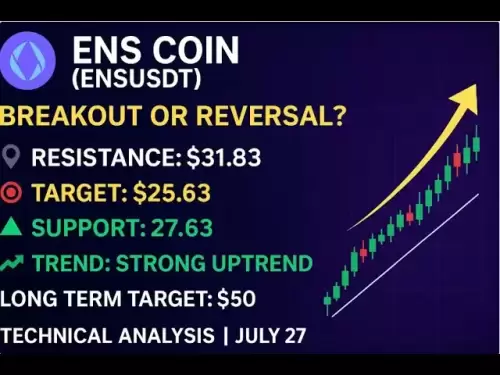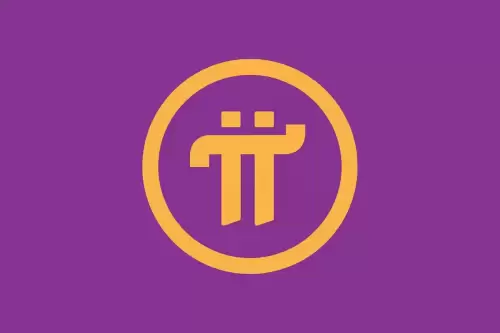 |
|
 |
|
 |
|
 |
|
 |
|
 |
|
 |
|
 |
|
 |
|
 |
|
 |
|
 |
|
 |
|
 |
|
 |
|
Cryptocurrency News Articles
U.S. Senators Advance First Major Federal Framework for Stablecoins
May 20, 2025 at 04:10 pm
In a pivotal late-night session, U.S. senators rallied to advance the first major federal framework for stablecoins, digital currencies tied to traditional assets.

In a pivotal late-night session, U.S. senators unexpectedly advanced the first major federal framework for stablecoins, overcoming a prior stalemate to clear a critical procedural hurdle Monday. Attention shifts to the House, where lawmakers are racing to finalize a competing measure ahead of a potential clash between chambers.
Both bills aim to impose strict safeguards on the burgeoning digital currency market, setting up a largely uncharted class of institutions that could operate largely unconstrained by existing financial regulations. They also seek to preempt state-level activity, having emerged following years of bipartisan efforts to craft legislation and keep pace with rapid developments in crypto.
The Senate voted 66-32 to fast-track the GENIUS Act, smashing the 60-vote threshold needed to limit debate and setting the stage for final approval. This time, 16 Democrats joined Republicans to propel the legislation forward, despite lingering concerns about oversight gaps and a lack of consumer protections.
Earlier this month, both Mark Warner (D-VA) and Ruben Gallego (D-AZ) opposed the bill due to these apprehensions. However, following last-minute negotiations that saw negotiators add minor protections, including the public official ban, both flipped their votes.
The breakthrough follows May 8, when the measure collapsed amid partisan gridlock, rendering it unable to proceed. A vote on Monday saw the bill pass overwhelmingly, surprising even seasoned observers given the prior setback.
The House is currently focused on the STABLE Act, which was approved by the House Financial Services Committee in March. It varies from the Senate bill in placing greater emphasis on federal oversight and rendering bank involvement in stablecoin activity more straightforward.
Both chambers will strive to reconcile any disparities between the bills to send a single legislative package to the president's desk.
The legislation would establish America's first comprehensive rules for stablecoins, a $230 billion market that is currently largely dominated by offshore players like Tether. It mandates strict safeguards for stablecoin issuers, rendering them unable to operate without sufficient capital or engage in risky activities.
The 89-page bill, which was introduced in February, would also impose an outright ban on algorithmic stablecoins, rendering them illegal to operate in the U.S. Additionally, public officials, including members of Congress, would be prohibited from launching such tokens while in office.
Large issuers, defined as those with outstanding tokens valued over $10 billion, would face direct oversight by the Federal Reserve, while smaller firms could opt for state licensing or close down their U.S. operations within 18 months of the law's enactment.
However, critics highlight that foreign operators like Tether would be able to continue their activities without needing to undergo the stringent audit requirements imposed on U.S. firms.
Furthermore, private technology companies, such as Elon Musk's X or Amazon, would still be able to issue stablecoins if they choose to remain private, a point raised by Better Markets' Dennis Kelleher.
"This invites Big Tech into finance without guardrails, allowing them to operate largely unfettered," Kelleher warned.
Consumer Protection Concerns
Consumer protection issues have been a subject of contention, with several House Democrats, notably Maxine Waters (D-CA), raising concerns about the lack of consumer shields in the legislation.
"We're nearing a point where we might lose the House leadership on this matter," said Greg Cherwink of the American Consumer Institute, highlighting the urgency of addressing these concerns.
"The Senate bill largely serves the interests of mega-corporations and flings open the door to tech companies like Amazon and Elon Musk to operate in this domain without sufficient oversight," Cherwink added.
Another pressing concern is the potential impact on traditional banks, which could witness a decline in deposits as individuals and institutions move to higher-yielding stablecoin products.
"There's a risk of deposits flowing out of traditional banks and into these new products, which could destabilize the financial system," said Janelle Matthews of the American Bankers Association.
"While we support Congress's efforts to craft legislation and regulate this emerging technology, it's crucial to get it right," Matthews emphasized.
Despite the urgency highlighted by consumer and banking groups, members of Congress appear focused on reaching a bipartisan agreement and enacting legislation by the end of the year, aiming to keep pace with global peers like the European Union, which are also working on their own digital currency rules.
"This isn't perfect, but it's progress," said Senator Cynthia Lummis (R-WY), a key sponsor of the bill.
"We've managed to find common ground without gutting the core of the bill or engaging in actions that would ultimately hinder innovation."
However, even as the bill passed a critical procedural hurdle, skepticism was evident among some lawmakers.
"This bill is a gift to crypto scammers and a recipe for disaster," warned Senator Elizabeth Warren (D-MA), a Democrat known for her staunch criticism of the crypto industry.
Disclaimer:info@kdj.com
The information provided is not trading advice. kdj.com does not assume any responsibility for any investments made based on the information provided in this article. Cryptocurrencies are highly volatile and it is highly recommended that you invest with caution after thorough research!
If you believe that the content used on this website infringes your copyright, please contact us immediately (info@kdj.com) and we will delete it promptly.





























































